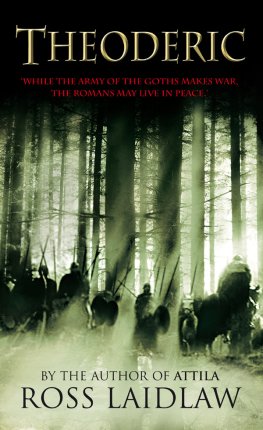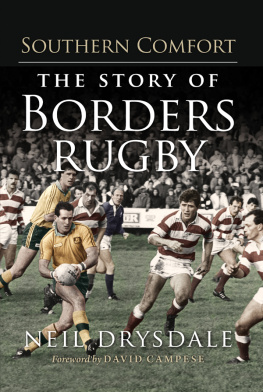William McIlvanney - Laidlaw
Here you can read online William McIlvanney - Laidlaw full text of the book (entire story) in english for free. Download pdf and epub, get meaning, cover and reviews about this ebook. year: 1977, publisher: Sceptre, genre: Detective and thriller. Description of the work, (preface) as well as reviews are available. Best literature library LitArk.com created for fans of good reading and offers a wide selection of genres:
Romance novel
Science fiction
Adventure
Detective
Science
History
Home and family
Prose
Art
Politics
Computer
Non-fiction
Religion
Business
Children
Humor
Choose a favorite category and find really read worthwhile books. Enjoy immersion in the world of imagination, feel the emotions of the characters or learn something new for yourself, make an fascinating discovery.

- Book:Laidlaw
- Author:
- Publisher:Sceptre
- Genre:
- Year:1977
- ISBN:0857869868
- Rating:4 / 5
- Favourites:Add to favourites
- Your mark:
- 80
- 1
- 2
- 3
- 4
- 5
Laidlaw: summary, description and annotation
We offer to read an annotation, description, summary or preface (depends on what the author of the book "Laidlaw" wrote himself). If you haven't found the necessary information about the book — write in the comments, we will try to find it.
Laidlaw — read online for free the complete book (whole text) full work
Below is the text of the book, divided by pages. System saving the place of the last page read, allows you to conveniently read the book "Laidlaw" online for free, without having to search again every time where you left off. Put a bookmark, and you can go to the page where you finished reading at any time.
Font size:
Interval:
Bookmark:
William McIlvanney
Laidlaw
1
Running was a strange thing. The sound was your feet slapping the pavement. The lights of passing cars batted your eyeballs. Your arms came up unevenly in front of you, reaching from nowhere, separate from you and from each other. It was like the hands of a lot of people drowning. And it was useless to notice these things. It was as if a car had crashed, the driver was dead, and this was the radio still playing to him.
A voice with a cap on said, Wheres the fire, son?
Running was a dangerous thing. It was a billboard advertising panic, a neon sign spelling guilt. Walking was safe. You could wear strolling like a mask. Stroll. Strollers are normal.
The strangest thing was no warning. You wore the same suit, you chose your tie carefully, there was a mistake about your change on the bus. Half-an-hour before it, you had laughed. Then your hands were an ambush. They betrayed you. It happened so quickly. Your hands, that lifted cups and held coins and waved, were suddenly a riot, a brief raging. The consequence was forever.
And the meaning of everything was changed. It had no meaning or too many meanings, all of them mysterious. Your body was a strange place. Hands were ugly. Inside, you were all hiding-places, dark corners. Out of what burrows in you had the creatures come that used you? They came from nowhere that you knew about.
But there was nowhere that you knew about, not even this place where you came and stood among people, as if you were a person. You could see who people thought was you in the mottled glass. His hair was black, his eyes were brown, his mouth wasnt screaming. You hated his ugliness. There was a green bottle with what looked like a fern inside it. There was a nose with enormous nostrils. On the black surface there were cloudy streaks where the wipings of a cloth had dried. A man was talking.
See ma wife, son. He was speaking towards where you should be standing. See when Ah go in here the night? Be like The Sands of Iwo Jima. Ahve been away since yesterday mornin. Met an old mate yesterday after ma work. Christ, we had a night at his place. One half borrowed another, ye know? Ah wis helpin him to get over his wife. Died ten year ago. He was drinking. Ah think Ahll go out an get knocked down. Give me an excuse.
You used to think things like that could be a problem, too. You cried when you broke a vase your mother liked. You hid the pieces in a cupboard. You worried about being late, offending somebody, things you shouldnt have said. That time wouldnt come again.
Everything had changed. You could walk for as long as you liked in this city. It wouldnt know you. You could call every part of it by name. But it wouldnt answer. St Georges Cross was only cars, inventing destinations for the people in them. The cars controlled the people. Sauchiehall Street was a graveyard of illuminated tombstones. Buchanan Street was an escalator bearing strangers.
George Square. You should have known it. How many times had you waited for one of the buses that ran all through the night? The Square rejected you. Your past meant nothing. Even the black man on the black horse was from another country, a different time. Sir John Moore. They buried him darkly at dead of night. Who told you his name? An English teacher who was always tired. Yawner Johnson. He told you interesting things between yawns. But he hadnt told you the truth. Nobody had. This was the truth.
You were a monster. How had you managed to hide from yourself for so long? Some conjuring trick to juggle smiles and nods and knives and forks and walks for the bus and turning the pages of a paper, for twenty years to make your life a blur behind which what was really you could hide. Until it came to introduce itself. I am you.
George Square was nothing to do with you. It belonged to the three boys walking tightrope on the back of a bench, to the people waiting in the bus-queues to go home. You could never go home again.
You could only walk and be rejected by the places where you walked, except the derelict tenements. They were big darknesses housing old griefs, terrible angers. They were prisons for the past. They welcomed ghosts.
The entry was dank. The darkness was soothing. You groped through smells. The soft hurryings must be rats. There was a stairway that would have been dangerous for someone who had anything to lose. At the top a door was broken. It could be pushed closed. Some light came in very dimly from the street. The room was very empty, some plaster from the ceiling on the floor.
It was strange how little blood there was, just some dark flecks on the trousers, so that you could imagine it had never happened. But it had happened. You were here. The body had been like leprosy. You were the leper, a contamination crouched and rocking on its haunches.
The loneliness was what you had made of yourself. The coldness was right. You would be alone from now on. It was what you deserved. Outside, the city hated you. Perhaps it had always excluded you. It had always been so sure of itself, so full of people who didnt open doors tentatively, who had a cocky walk. It was a hard city. Now all its hardness was against you. It was a mob of bitter faces turned towards you, it was a crowd of angers all directed against you. You had no chance.
Nothing to do. Sit becoming what you are. Admit yourself, the just hatred of every other person. Nowhere in all the city could there be anyone to understand what you had done, to share it with you. No one, no one.
2
Laidlaw sat at his desk, feeling a bleakness that wasnt unfamiliar to him. Intermittently, he found himself doing penance for being him. When the mood seeped into him, nothing mattered. He could think of no imaginable success, no way of life, no dream of wishes fulfilled that would satisfy.
Last night and this morning hadnt helped. He had finally left Bob Lilley and the rest still on the surveillance in Dumfries. On the strength of solid information, they had followed the car from Glasgow. By a very devious route it had taken them to Dumfries. As far as he knew, that was where it was still parked in the waste lot beside the pub. Nothing had happened. Instead of catching them in the act of breaking in, three hours of picking your nose. He had left them to it and come back to the office, gloom sweet gloom.
It was strange how this recurring feeling had always been a part of him. Even when he was a child, it had been present in its own childish form. He remembered nights when the terror of darkness had driven him through to his parents room. He must have run for miles on that bed. It wouldnt have surprised him if his mother had had to get the sheets re-soled. Then it had been bats and bears, wolves running round the wallpaper. The spiders were the worst, big, hairy swines, with more legs than a chorus-line.
Now the monsters were simultaneously less exotic and less avoidable. He was drinking too much not for pleasure, just sipping it systematically, like low proof hemlock. His marriage was a maze nobody had ever mapped, an infinity of habit and hurt and betrayal down which Ena and he wandered separately, meeting occasionally in the children. He was a policeman, a Detective Inspector, and more and more he wondered how that had happened. And he was nearly forty.
He looked at the clutter on his desk. It was as if on the desert island of his feeling this was all that chance had left him to work with: the two black-bound books of Scottish Criminal Law and Road Traffic Law, the red MacDonalds, establishing precedents, and the blue book on stated cases, the telex-file on British crime, the folder of case-reports. He wondered how you were supposed to improvise fulfilment out of that lot.
He was aware of the neatness of Bob Lilleys desk across from him. Did neatness mean contentment? He glanced over to the pin-board on the wall facing the door: shifts, departmental memoranda, a photograph of The Undertaker a con-man Laidlaw liked overtime payments, a list of names for a Crime-Squad Dinner Dance. These fragments I have shored against my ruin.
Font size:
Interval:
Bookmark:
Similar books «Laidlaw»
Look at similar books to Laidlaw. We have selected literature similar in name and meaning in the hope of providing readers with more options to find new, interesting, not yet read works.
Discussion, reviews of the book Laidlaw and just readers' own opinions. Leave your comments, write what you think about the work, its meaning or the main characters. Specify what exactly you liked and what you didn't like, and why you think so.








